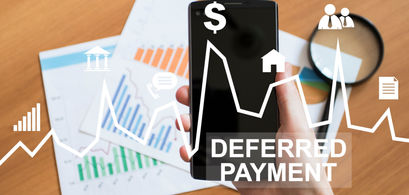Definition
The financial accounting term deferred payment contract refers to an agreement to purchase an asset using a long-term credit arrangement. Accountants need to understand the terms of a deferred payment contract since they can be used to value an asset appearing on the company's balance sheet.
Explanation
Accounting rules state that an asset should be recorded at its fair market value, or the fair market value of what the company gave up to acquire the asset. The clarity of fair market value can be obscured by the payment terms when the asset is procured. For example, companies may enter into purchase agreements with sellers that provide them with long-term credit arrangements.
Assets purchased under long-term payment contracts need to be booked at the present value of the future payments. If the contract does not specify an interest rate, or the interest rate is deemed unreasonable, then one must be assigned. The assigned rate should consider the purchaser's credit rating, the length of the contract, and the rate of interest charged on similar arrangements.
Example
Company A has entered into an agreement to purchase a widget maker from Company XYZ. Company A's procurement group has negotiated a contract whereby Company A receives the widget maker in exchange for a non-interest bearing note payable of $50,000 due in three years. Unfortunately, the widget maker will be custom-built for Company A, so it's not possible to determine a fair market value.
Since the note does not indicate a rate of interest, Company A's accounting team has assigned the note payable an interest rate of 6%, which is the rate charged on similar purchases. The present value of the note would be calculated as:
= $50,000 / (1 + 0.06)3 =$50,000 / 1.191016 = $41,981
The journal entry to record the transaction would be:
Debit | Credit | |
Equipment | $41,981 | |
Discount on Notes Payable | $8,019 | |
Notes Payable | $50,000 |






